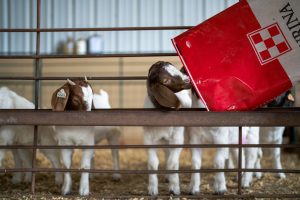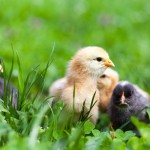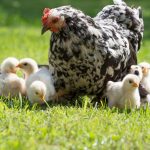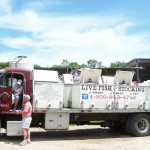 It’s exciting when your hobby farm starts expanding. Whether you’re amid adding to your backyard oasis, or you’ve recently expanded, you’ll need to know where each animal is going to live and what’s required to keep them comfortable. With spring (and muck) here, these few tips can help to maintain a clean, dry and mud-free space.
It’s exciting when your hobby farm starts expanding. Whether you’re amid adding to your backyard oasis, or you’ve recently expanded, you’ll need to know where each animal is going to live and what’s required to keep them comfortable. With spring (and muck) here, these few tips can help to maintain a clean, dry and mud-free space.
Start with solid animal bedding
Taking care of your animals’ feet or hooves can help their overall well-being. Having proper bedding for each animal in their coop, pen or stall will ensure their housing is aiding in their wellness.
Poultry: Consider absorbent wood shavings in the coop and nest boxes and gravel in the run.
Pigs: Provide separate wet and dry areas.
Goats: You can use a plain dirt floor covered with a thick layer of bedding.
For all species: Straw, shavings or wood chips can easily be cleaned out and replaced. Avoid cedar, as it can cause respiratory issues in many small animals.
While gravel in runs and pens can be a larger investment for your hobby farm, it ultimately promotes good drainage and helps limit mud. Gravel provides a solid surface for donkeys, rabbits, horses and chickens that aids in feet and hoof health.
Consistent barn cleaning
Your new family members aren’t going to be cleaning their rooms, so make sure to set a consistent barn cleaning schedule. Perform daily spot checks in the pens, coops and stalls. Regularly replace damp or wet bedding in all spaces to reduce conditions for parasites, viruses or bacteria to thrive. Typically, weekly replacements of animal bedding will suffice in keeping their spaces clean.
Proper farm ventilation
Whether it’s a coop, game bird housing, indoor pig pen, rabbit hutch or a barn, having proper farm ventilation will not only help support animal health, but also help reduce moisture. Excess moisture in your animals’ housing can lead to ammonia buildup and can be hazardous to your animals. Windows on multiple sides of your housing and fans can provide nice airflow, keep your animals cool during summer and promote respiratory health.
Space to move
Each animal in your hobby farm requires a different amount of space. Chickens need at least 2-3 square feet of indoor space and 7-8 square feet of outdoor space. Backyard goats need roughly 225 square feet per pair of goats. For pigs, plan for 50 square feet per pig indoors and 20 square feet per pig outdoors. Having enough space for all your animals reduces overcrowding, which can lead to increased moisture and sanitation problems.
Keep feed and water areas clean
Fresh feed and a constant water supply for all species are essential for maintaining strong and happy animals. Designate areas within their housing that either have proper drainage or are on a concrete or gravel surface. Ensure waterers always have water in them. Both feeders and waterers should be cleaned as needed.
For feed storage, find a place that avoids direct sunlight and moisture. Your backyard menagerie will appreciate you and all the work you put into keeping their spaces clean.
Patrick Briggs, Ph.D.



